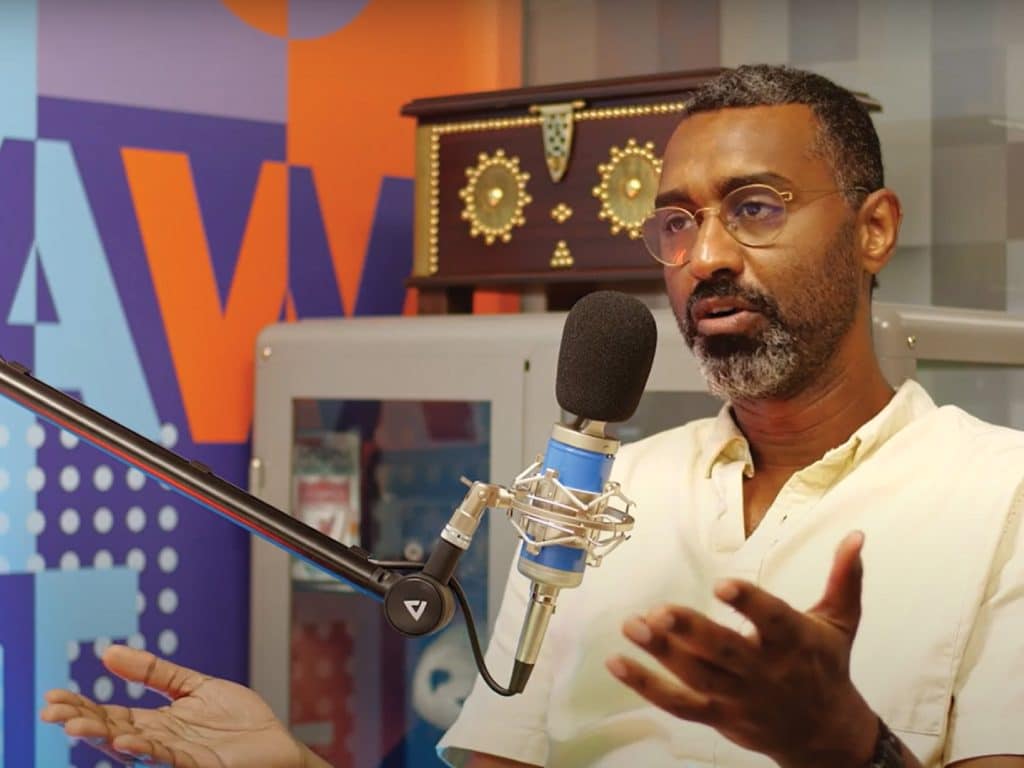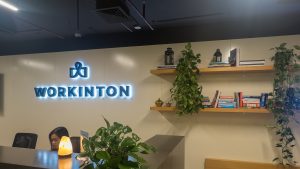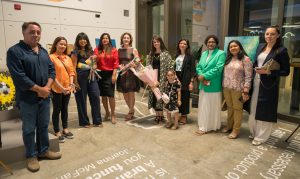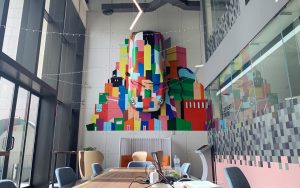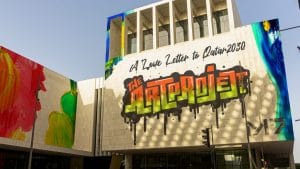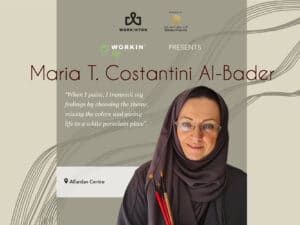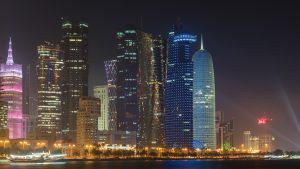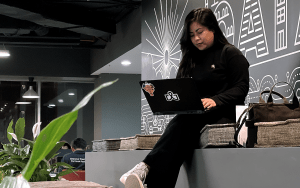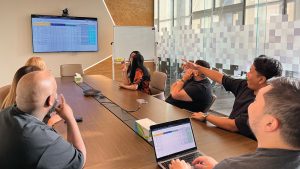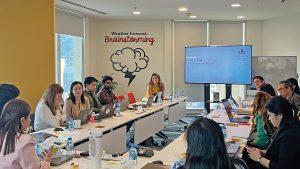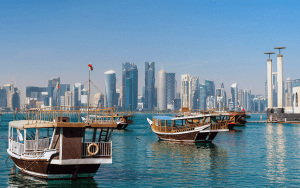This blog is inspired by Khalid Albaih’s conversation with Hamad Al Amari titled: Inspiring Change Through Art: Khalid Albaih and Hamad Al-Amari Discuss Advocacy, Family, and Career.
During the conversation, Khalid Albaih talks about the importance of nuance in his line of work. But the conversation on nuance does not end at political cartoons. Now more than ever, understanding the bigger issues of what is going around the world is important in business as much as it is in art.
Khalid Albaih tells Hamad that our world is becoming saturated with 3-second messages, oversimplifying complex issues. Hence, he emphasizes the significance of comprehending the underlying context for a more nuanced understanding. Which makes sense because in the age of the internet and social media, we are relentlessly inundated with information. It arrives in unceasing waves, washing over us, sometimes sweeping us along in its currents. We’re left to navigate this constant torrent, parsing truth from falsehood, significance from noise.
Amidst this information deluge, the art of nuance is not only crucial but has also become a prerequisite for constructive conversations, informed decisions, and balanced perspectives, something Khalid Albaih alludes to. Therefore understanding the importance of nuance and appreciating its role is vital to our collective progress.
Understanding Nuance
Nuance is the appreciation of subtlety—the acknowledgment of complexity in matters that are often oversimplified. It’s about recognizing the shades of gray that exist between the black and white absolutes. It’s an approach that’s open, thoughtful, and thorough; a willingness to question, listen, and understand multiple facets of an issue. Nuance seeks to uncover layers, probe depths, and encourages us to avoid premature conclusions based on superficial interpretations.
Nuance in an Age of Polarization
In a world dominated by polarized viewpoints, characterized by an oversimplified “us vs. them” mentality, the need for nuance is all the more critical. There’s a growing tendency to reduce complex issues to sound bites and 280-character tweets, leaving no room for depth. This results in two-dimensional thinking, where discourse is limited to extremes, stifling the exploration of alternative perspectives and missing the rich complexity that reality often holds.
In such a context, nuance acts as a bridge that links disparate views, fostering understanding and dialogue instead of discord. It enables us to break free from the confines of binary thought, taking us into a realm where we can entertain the possibility of co-existing truths. It’s about seeing the world in its multifaceted reality and realizing that disagreement on one issue doesn’t need to result in total division.
The Nuance of Information Consumption
The age of information has brought about an unprecedented availability of data, opinions, and narratives. In this environment, consuming information with nuance becomes crucial. Being nuanced in our information consumption means understanding that the source of information, the context in which it’s presented, and the inherent biases at play can significantly impact the message received.
Moreover, nuance reminds us that no single source has a monopoly on truth. It nudges us to cross-reference, to question, and to engage with different perspectives. It’s a tool that helps us resist the manipulative aspects of misinformation and disinformation campaigns, reminding us that truth often resides in the cracks between popular narratives.
Nuance in Decision Making
In our personal lives, professional fields, or on broader societal scales, nuanced decision-making can make the difference between success and failure, harmony and conflict, progress and stagnation. Decisions taken without considering the intricate fabric of factors involved can lead to unintended consequences, exacerbating issues rather than solving them.
A nuanced approach to decision-making involves taking the time to understand the complexity of a situation, the interplay between various elements, and the potential ripple effects of a chosen course of action. It means accepting that most decisions aren’t between a perfect solution and a terrible one, but rather a balance of advantages and compromises.
Incorporating Nuance into Our Lives
Incorporating nuance into our daily lives and dialogues is a commitment to mindfulness, openness, and complexity. It involves exercising patience in our quest for understanding and resisting the urge to oversimplify. It requires us to appreciate differences, to understand that people and situations are shaped by a multitude of factors, visible and invisible, that contribute to their present state.
It’s a practice of humility too, acknowledging that our grasp of the truth is often partial, and that our perspectives, no matter how deeply held, might not hold all the answers. By allowing nuance to inform our conversations, decisions, and actions, we create space for understanding, growth, and progress.
Bringing it all Together
In a world that’s becoming increasingly connected and complex, the importance of nuance cannot be overstated. It’s a powerful tool that helps us navigate the turbulent seas of information, make thoughtful decisions, and engage in productive conversations. As we continue to confront global challenges that demand collective action and understanding, the art of nuance becomes a critical skill for the times. As individuals and societies, we must strive to cultivate this practice—honoring complexity, celebrating diversity, and fostering empathy, now more than ever.
